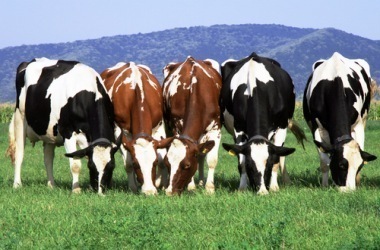WHERE’S THE BEEF? Data show US has lowest beef cattle inventory in over 60 years
03/06/2023 / By Oliver Young

Data from the U.S. Department of Agriculture (USDA) shows that beef cattle inventory in the country is at its lowest point in over six decades.
According to the USDA’s biannual cattle report, the head inventory as of Jan. 1 is 89.3 million — three percent lower than the total last year and the lowest since 2015. Of that number, 38.3 million cows and heifers have calved.
There are also 28.9 million beef cows, or those explicitly bred for slaughter and meat sales, which is down nearly four percent from last year and the lowest the agency has recorded since 1962.
Some challenges and reasons for the decline in beef cows appear to be the input prices and the drought last year. Input costs like diesel and fertilizer have doubled or even tripled, while the hot and dry summer has led to increased reliance on groundwater in the absence of rainfall.
Drought conditions have forced many producers to cull deeper into their herds than they might have otherwise preferred. Elevated beef cull prices contributed to an 11 percent increase in beef cow slaughter, according to USDA.
James Mitchell, extension livestock economist at the University of Arkansas, said the cattle production’s downward trend does not seem like it will reverse in 2023.
“There is a pretty substantial biological lag in the beef supply chain,” Mitchell noted. “What consumers experience at the grocery store is a product of what cattle producers were going through a year or two ago. It takes about two years for a new calf to become the steak on your dinner plate.”
Meat industry is under attack
At least for now, the decline in America’s supply of beef doesn’t seem to be forced or intentional. In other countries, cows and other animals are being targeted by their own governments and climate alarmists.
In Germany, the Green Party and Social Democrats proposed increasing the tax on meat to at least 19 percent, up from the current seven percent charge on most foods.
As expected, climate change alarmists liked the idea and even pushed for it to be implemented in other rich countries.
A coalition of Berlin environmental economists said livestock farming is a huge contributor to greenhouse gas emissions as well as soil and water pollution.
Professor Linus Mattauch, an honorary research associate at the School of Geography and the Environment at the University of Oxford, said evidence suggests the environmental impacts of meat are so large that the world can’t meet climate goals and keep vital ecosystems intact without reducing meat consumption.
According to Mattauch, increasing the price of meat to a prohibitive degree can be the solution to the meat consumption problem.
In New Zealand, a multi-sector group called He Waka Eke Noa (HWEN) called for the imposition of a climate tax on farm animals when they belch or pass gas. (Related: Climate change craziness: New Zealand plans to tax FARTS and BURPS of farm animals.)
The group wanted a farm-level split-gas levy on agricultural emissions, with built-in incentives to reduce emissions and sequester carbon.
Under the measure, farmers will have to pay taxes for the carbon emissions from their farm equipment, as well as the methane emissions produced by livestock as their stomachs digest food. If Wellington adopts HWEN’s proposal, the government will essentially tax burps and farts coming from cows, sheep and other farm animals starting in 2025.
Visit FoodSupply.news for more news about attacks on food supply.
Watch this video about the low beef cattle inventory in the United States.
This video is from CADKIAH channel on Brighteon.com.
More related stories:
Attack on food supply continues: Germany proposes tax increase specifically targeting meat products.
Argentina bans beef exports in attempt to control record-high levels of food inflation.
Food inflation: Beef prices continue to skyrocket.
Sources include:
Submit a correction >>
Tagged Under:
agriculture, America, beef, big government, carbon dioxide, cattle production, climate, climate tax, collapse, famine, food collapse, food supply, green tyranny, grocery, hunger, meat industry, rationing, scarcity, starvation, supply chain, USDA
This article may contain statements that reflect the opinion of the author
RECENT NEWS & ARTICLES
COPYRIGHT © 2022 Rationing.News
All content posted on this site is protected under Free Speech. Rationing.News is not responsible for content written by contributing authors. The information on this site is provided for educational and entertainment purposes only. It is not intended as a substitute for professional advice of any kind. Rationing.News assumes no responsibility for the use or misuse of this material. All trademarks, registered trademarks and service marks mentioned on this site are the property of their respective owners.




















